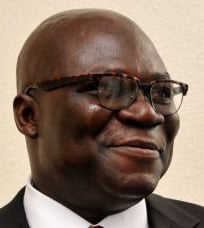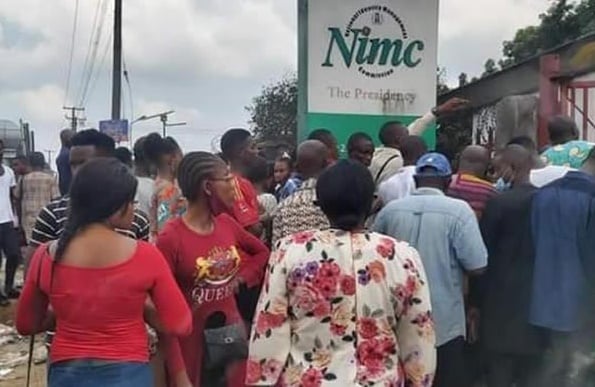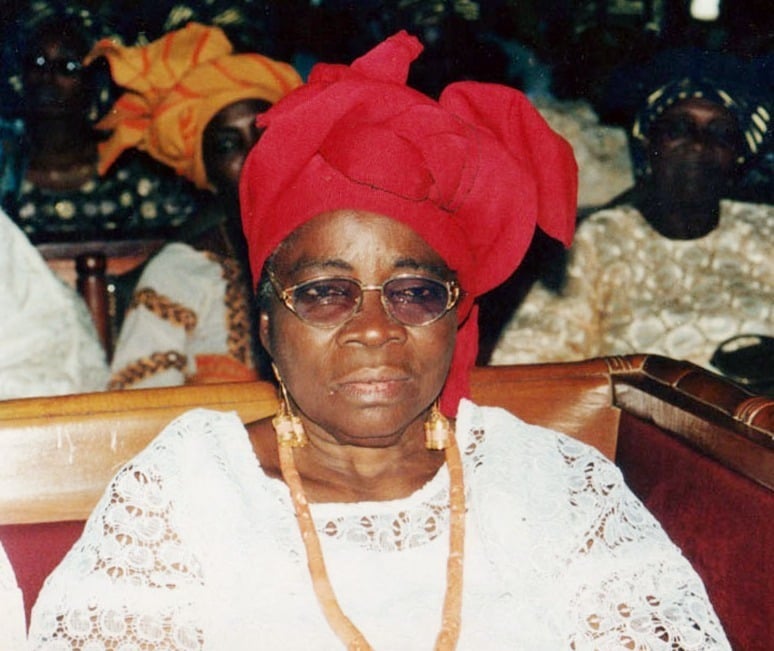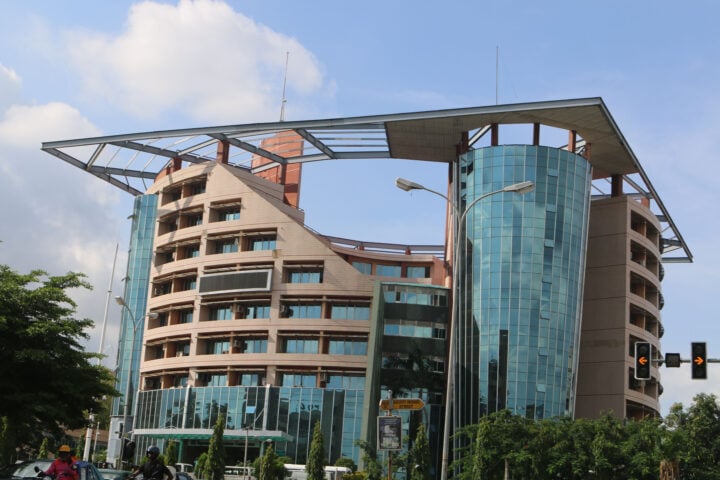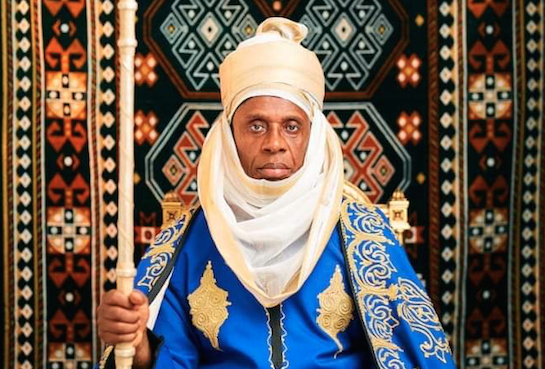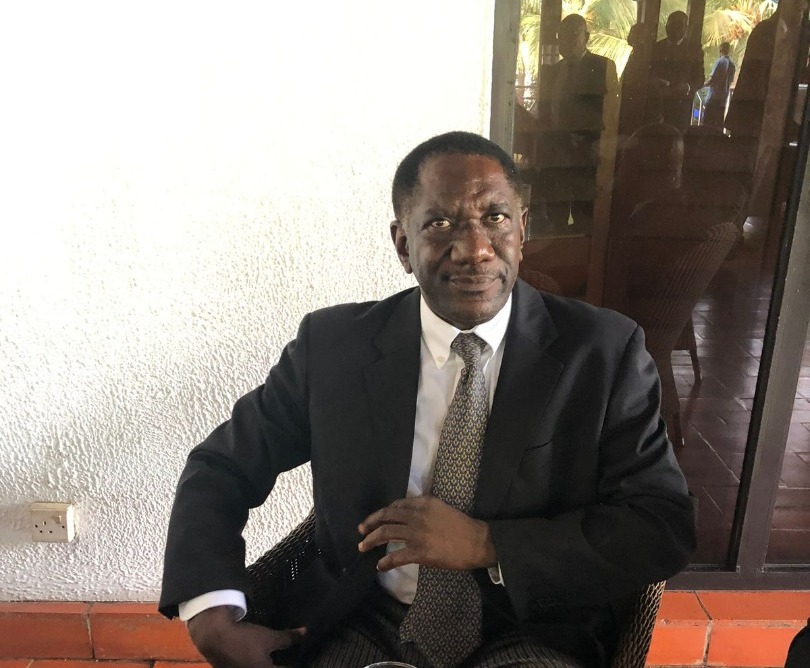NIN from hell
Last week, the Nigerian Communications Commission (NCC), a government agency under the ministry of communications, currently led by Minister Isa Pantami, took the decision and made same public that any user of a GSM phone who is yet to link his or her national identification number (NIN) to a subscriber identification module i.e SIM cards, would be barred from making any further calls on the country’s telecommunication network. The telecommunication operators were so ordered to effect the directive and so by April 4, over 48 million phones had been barred from making any GSM calls. The idea of having mobile telephone lines in Nigeria linked to NIN was first mooted in 2020. Ten times so far, the ministry of communications and its subsidiary agency, have extended the deadline for compliance ten times. In December 2020, over 72 million lines were barred from making calls. Following appeals to the government, the deadline was again extended for the tenth time.
The original reason given for the registration of SIM cards was national security. Too many persons, the government observed, commit crimes through mobile telephony, from the use of the lines to kidnap persons collect ransom, lure persons into ritual killings, rape, murder, extortion advance fee fraud and all kinds of criminal activities. In a country of over 200 million people, it made sense to use mobile telephony penetration to track the people and gather data. The linkage between the Nigerian Communications Commission and the National Identity Management Commission (NIMC) in this regard made sense. Data is the biggest problem in Nigeria. Nigeria plans without data. Nigerians do not respect data. They are more likely to operate on the basis of faith and superstition. Nigerians don’t even know how many they are. With the increasing penetration of mobile telephony, a veritable tool of inclusion and democratization, there is no doubting the quality of data that can be mined from such a strategic and accessible public and open resource for development planning and national security reasons. It is in this regard that I think the NCC/NIMC intervention was useful and advisable, absolutely in principle. Indeed at a point, the Nigerian regulator fined MTN, the biggest telecommunications company in the country, $3.9 billion for failing to disconnect unregistered SIM cards.
But where are we at this moment and why? In the last week, many Nigerians whose phones are not yet linked to the NIN, are busy agonizing. They cannot make direct calls. They can only receive calls through their WhatsApp applications. Over 48 million Nigerians have been shut down. I can no longer count on my fingertips or the strands of hair on my head, the number of Nigerians who are literally weeping and gnashing their teeth that living without their mobile phones is like a trip to purgatory. Businesses have been affected. Love lives and relationships as well. This reminds me of an essay I once wrote wondering how we used to live before the advent of mobile telephony. I recall those days when every Femi, Chuka and Musa used to go to NITEL offices to make phone calls, only to get lucky or unlucky after many hours in the queue. Few persons had phones at home at the time, and for those who were privileged what kind of phones did they have? – early 20th-century grandfather phones that left your fingers bruised after every call and after a usually annoying encounter with the disrespectful staff at the telephone exchange who could be heard often times eavesdropping on your conversation and giggling at your expense.
The revolution in the telecommunication industry in Africa put an end to all that. It brought the people more than anything else, freedom. It shattered one aspect of the illusion of elite privilege and superiority. Telephone exchange staff became irrelevant – nobody needed them any longer and the gossip that they enjoyed ended. For a while, there was something called Thuraya Satellite phones! All those women who got carried away by men who wielded those bulky phones, just before the democratization of telephony must be wondering why they got carried away so easily by something that became nothing within such a short space of technological advancement and innovation. Today, Femi, Musa and Chuka can hold a phone, and call anywhere in the world without anyone’s assistance.
Advertisement
The only problem I see here are those Nigerians, the annoying ones who don’t load credit on their own phones, that is the “Oga, Oga, I don’t have credit, please call me back” crowd. When you call back, the same person who has no credit on his or her phone wants to beg for money from you, but he or she would never think of borrowing credit to even borrow from you. This is why my favourite feature on mobile telephony is Truecaller. Once you can memorise the list of time wasters and the greedy crowd, it is easy to just ignore their calls, except they are willing of course to make the call, before that usual line: “Brother mi, please I need your help oh”. The danger is that every request is a matter of life and death, and the response is expected immediately. Nobody cares about your own circumstances. When you tell them you don’t do this thing they call bank transfer, they would even offer to travel down to set it up for you, so that any time they need a handout from you, there will be no delay – Nigerians and their terrible sense of entitlements and the discontents of mobile telephony!
If people suffer this much in the hands of extended family stalkers, extortionists and abusers, I have no problem with the state qua state saying that it needs to have a record of everyone who makes a call, or owns a phone. A mobile phone looks good. It is a tool of communication. It is also a status symbol. Indeed, when some Nigerians step out of their homes in the morning, they do not hold one phone, they carry about three, and in terms of cost, those three phones are more than enough to buy a plot of land and start the foundation of a building. Some people are so vain, despite the poverty in the land, that when you move beyond the value of their many phones and assess the cost of their jewellery and apparel, the total combo would be enough to build a house! With such a display of insensitivity and the crime level in the country, the Nigerian government is right to seek to know what people do with their phones. And who owns which phone? These small gadgets that people hold in their hands and call mobile phones can be used for good and ill. It is the same instrument that is used to announce good news, that terrorists use to deliver messages of evil. Freedom is a good concept in human societies, but it is not an absolute proposition.
But why would Nigerians refuse to obtain the NIN and link their phones after ten postponements by the Nigerian Communications Commission (NCC), over a period of two years? The first thing is that the people do not trust their governments. We have reached a sad point in this country whereby the people consider the government their number one enemy. They doubt anything that is related to the government. Whatever government proposes, the people are likely to think that the primary interest is not theirs but the selfish interests of government officials. Without any deep reflection, they reject any government initiative almost instinctively. The fact that religion, ethnicity and ego are often thrown into the mix makes everything worse. Nigerians are also the most superstitious human beings in the world. They read meaning into everything. When this whole drama about NIN/SIM started, Nigerians were naturally suspicious. Nobody allayed their fears and so the conspiracy theories grew wings. Do they want to monitor our phone calls? What do they need NIN for? Do they want to use this as an excuse to bring in people from Niger and Chad to manipulate the 2023 general election? Even if we take the numbers, who will protect the privacy and guarantee integrity?
Advertisement
As is typically Nigerian, nobody could offer any clarifications. The approach adopted by the government was to bully the people and issue threats. That worked. People trooped to the registration centres. The centres were chaotic. Long queues, abusive staff. There were reports of extortion to get just a number. NCC addressed that by getting the telecommunication companies involved and setting up new centres at some point. It was at that point that I got involved. I had to get to the service centre at 6am, alongside Ms Ijeoma Nwogwugwu and Mr Adibua Okwesa. Still, we met a queue. It is so strange that in Nigeria, you cannot get certain things, including visas to foreign countries, or a national identification number (NIN) except you go through a night vigil or its equivalent. The federal government of Nigeria may insist on its policy choices in this context, but the point is that it was a terribly managed process. The repeated extensions were also in part due to failures on the part of the government and its agents. The NCC and the federal ministry of communications jumped into the process without any clear thinking, completely without preparation and without enough public enlightenment.
The second thing is that the people don’t really care. Why should NIN/SIM card alignment be a priority when Nigerian borders are so porous and there is so much poverty in the land?
What I cannot understand is the chaos and confusion that people have been subjected to in the last few days. Suddenly and after a fashion, many NIN registration points are no longer working in parts of the country. Persons who had even obtained the NIN and who may have forgotten to link the NIN to their phone lines are being told to wait. They are asked to wait either because their numbers cannot be traced or because the electronic system in these places is down. People are desperate. They have learnt to rely on their mobile phones. Losing a phone is like being castrated; holding a phone and not being able to make a regular call with it is like mental torture. People around me have been screaming. They are losing it because they can’t make calls without their phones. They shout at the top of their voices when I tell them that we once lived in this same country where a certain military chief, a minister of communications, who later became a prominent politician and chairman of the country’s legislature, boasted, one of those days, that telephones are not meant for the poor! They think I am talking fiction, but it is the truth, even if the man’s media handlers have tried to water down the statement over the years. These days the poor own the phones and they are very assertive about their right to also make phone calls.
I want to appeal to the federal ministry of communications and the Nigerian Communications Commission to take a second look at the latest deadline. When the queues built up and the people complained, the government was helpless. I commend the agencies, however, for the decision to extend the deadline further until now.
Advertisement
I also admit that the federal government had given so many earlier warnings. But that is Nigeria for you. The people do not obey directives by the government until they are convinced that it is something deserving of their concern. But by now, it must be clear to Nigerians that government means business with the registration of NIN and SIM cards. Their reluctance to comply is more of a comment on people-government relations than the people themselves, or perhaps both to be fair.
I recommend a more cautious approach. Even those who had their NIN cannot link up. The NCC must look at their back-end operations. It is either the operating system is overwhelmed or there is a need to look at whatever is happening at that back-end. Phone users have been told to go quickly and sort out their NIN/SIM registration and many are out there in compliance but the confusion is enormous. It would be wrong to project the typical Nigerian attitude that the people deserve to be punished. No. Many are actually innocent offenders. It seems to me that the alignment of the NIN and SIM cards should be a permanent, ongoing process. There must be more creative ways of making sure that the people comply. What are those other options? Candidly, I have no technical ideas, beyond common sense, but I think mounting additional pressure on a population that is already under the weather as a result of existential uncertainties is most unkind; a national currency that is heavily devalued, the cost of diesel going up so badly even the rich now ration electricity supply, no jobs, no water, no electricity and yet in the midst of it all, some people are beginning to show up talking about 2023 general elections and promises that they do not intend to keep.
The barred GSM lines should be opened up for another reason; the cost to the economy and the effect on the mental health of the people. I suggest that the government should meet the people halfway, encourage them, and show a little more empathy. The people should also meet the government halfway by simply obeying the directive that every barred SIM card should be registered and thereby get unbarred.
Advertisement
Views expressed by contributors are strictly personal and not of TheCable.
Add a comment
